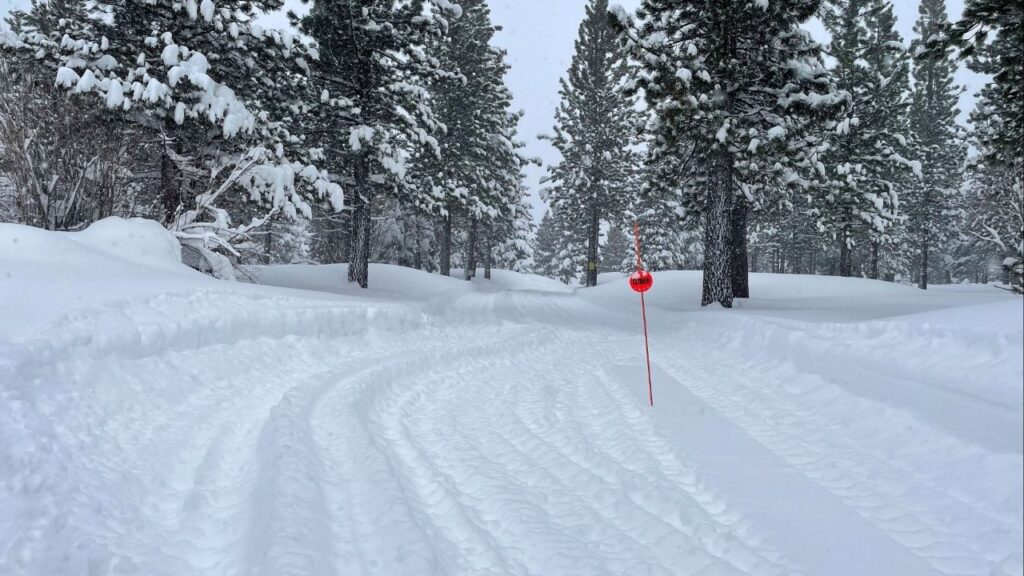Share
With much fanfare and no less hand-wringing, state regulators approved plans that for the first time set out how California’s electric utilities intend to prevent their equipment from sparking wildfires.

by Julie Cart
CALmatters
Further, the nearly $3 billion price tag for California’s utilities to perform fire-deterrent work is heavily weighted toward projects that afford them financial advantages and tax benefits: As things stand, the investor-owned utilities may recover 10% or more beyond what they spend on the projects, recouping the money from their customers.
Pole replacement, for example, is a big-ticket item in many of the plans—causing some skeptics to wonder if it’s there for wildfire-resistance or profit-making. When utilities invest in infrastructure, they may gain tax benefits by accelerating depreciation on their equipment.
Overall, the state’s Public Utilities Commission “verified an outline, not a plan,” said its former president, Loretta Lynch. “Nobody is figuring out whether or not these plans contain any measure of mitigation, or whether they are just and reasonable–which are the two pillars of utility regulation.”
Enormity of California’s Wildfire Problem
The commission, operating under an urgent deadline from the Legislature, rushed the approval process on a “rocket docket.” Utilities submitted the plans in February and the commission signed off on them May 30, even while admitting that it lacks the expertise to determine if the proposals will make a difference.
“There are limits to what can be accomplished under the timeline we were under,” Picker said, adding that the plans are a work-in-progress. “We are not going to solve this in one year.”
The enormity of California’s wildfire problem – last year was the deadliest and most destructive on record — propelled the Legislature to act. But that speed may have prevented the utilities from fleshing out their proposals or offering data to support their claims.
“We have never seen anything move this fast,” said Shana Lazerow, legal director of Communities for a Better Environment, which participated in a hearing the commission held on behalf of low-income communities. “This is complicated material and required more time to do it justice. We are taking (the utilities’) word for it.”
The commission acknowledged the paucity of proof in its decision to approve San Diego Gas and Electric’s plan, with a caveat that applies to all the fire plans:
“A key concern in all utilities’ (plans) is that the ‘metrics’ are based on how much work the utility will perform (e.g., how many trees it will cut, how many miles of conductor it will install), rather than on the results of this work (e.g., reduction in wildfires or other events that cause wildfires)…metrics are to be used to evaluate whether the plan actually reduces the risk of catastrophic wildfire. Thus, it is not enough to measure how many trees are trimmed or miles of conductor are replaced.”
Companies’ Plans Emphasize Brush, Tree Clearance
Zoraya Griffin, a SDG&E spokeswoman, said all the utilities will provide additional information to the commission in the next phase of the proceedings, in late August: “In terms of quantifiable measurements, we look forward to sharing that data.”
Cal Fire’s chief of utility mitigation, Mike Wilson, agreed that “you have nothing to go on, no metrics” with which to judge the plans. But, he said, California utilities are at last making an effort:
“They are changing course, but it’s like turning a supertanker.”
The companies’ plans uniformly emphasize brush and tree clearance, replacing wooden poles for composite or steel ones, ramping up weather monitoring and adding remote cameras, and employing “hardening measures” such as insulating lines and installing protective covers over some equipment.
But the utilities commission cautioned the companies against taking out wide swaths of vegetation without considering how fire prone the plant or tree is, or whether it’s healthy. PG&E, for example, was told to consult professional arborists before removing live trees. Likewise, vegetation must be trimmed from around poles and lines, the commission said, but utilities plant removal should conform to a plan that won’t denude whole areas and create unintended environmental consequences.
Experts say that not all of those ideas are worth the price tag.
“System hardening sounds good, but most of the fires that have been caused across the board in the United States would not be specifically mitigated by hardening,” said Don Russell, an electrical engineer at Texas A&M University who researches utility-caused fires.
Fund to More Quickly Reimburse Fire Victims Not Yet Drafted
“If you were to ask me, ‘Are replacing utility poles the best place to spend your money to cut down the risk of fire?’ the answer would be, ‘No.’ Poles falling over and taking lines down with them is not a huge factor in wildfires. In fact, it seldom happens.”
On the other hand, Russell said, if more robust poles are still standing after fires it makes restoring power much speedier.
During the commission’s proceedings some commenters questioned whether the proposed replacement poles would really be superior—what happens, they asked, if a heavy steel or composite pole does come down and then, too heavy to move, clogs evacuation routes.
Marcel Hawiger, an attorney with the Utility Reform Network, a consumer watchdog group that closely follows the state’s electricity providers, called PG&E’s pole replacement plan “overkill.”
“That’s what they get profits from, and the accelerated-depreciation benefit for all types of maintenance work,” he said. “We are not sure if that is necessary to mitigate fire—and may totally be a waste of time.”
But return-on-investment is guaranteed under Utilities Commission rules, and utility companies know how to navigate the system. Bill Julian, a utility attorney who formerly worked at the commission and was chief counsel to the Assembly Utilities and Energy Committee, said the cost-recovery process is complex, with an “infinite number of opaque and game-able strategies.”
Gov. Gavin Newsom’s recent legislative proposals specifically disallowed utilities from profiting off of their wildfire mitigation work. That and other of his proposals, including a fund to more quickly reimburse fire victims, have yet to be drafted into bill form.
Clock Is Ticking on Newsom’s Proposed Legislation
In approving the plans the utilities submitted, the commission specified that companies could not “seek or obtain double recovery of cost,” cautioning that if they are already asking for reimbursement for current projects, they may not include those costs in a new request.
Bill Chiu, managing director of grid resiliency for Southern California Edison, said the utility will spend as much as $680 million this year for fire mitigation projects, adding, “This is not about spending money. This is about putting in place the appropriate amount of mitigation to address the risk.”
The costs for the new fire projects will be carefully recorded, he said, so that they don’t duplicate work the company is already in the process of being repaid for.
Meanwhile the clock is ticking on Newsom’s proposed legislation: the Legislature’s last work day before its summer recess is July 12. It’s also the timeframe for national ratings agencies to weigh in on possibly downgrading the credit of Edison and SDG&E, based on wildfire liability.
With PG&E in bankruptcy and facing $30 billion in claims, state officials hope the governor’s proposed legislation, and these wildfire amelioration plans, will help steady nerves on Wall Street.
The utilities were compelled to submit their plans by legislation last year by Napa Democratic Sen. Bill Dodd. He now acknowledges that many contours of the plans need backfilling, but said the utilities will provide that additional information soon.
“It will be better next year,” Dodd said. “Luck and hope are not strategies, but we will need both.”
Want to get up to speed on what’s causing California’s worsening wildfires, and what’s being done to prevent them? Check out our CALmatters wildfire explainer.
CALmatters.org is a nonprofit, nonpartisan media venture explaining California policies and politics.
Categories

Meta’s Zuckerberg Denies at LA Trial That Instagram Targets Kids

What You Need to Know About Avalanche Safety in the Backcountry

















